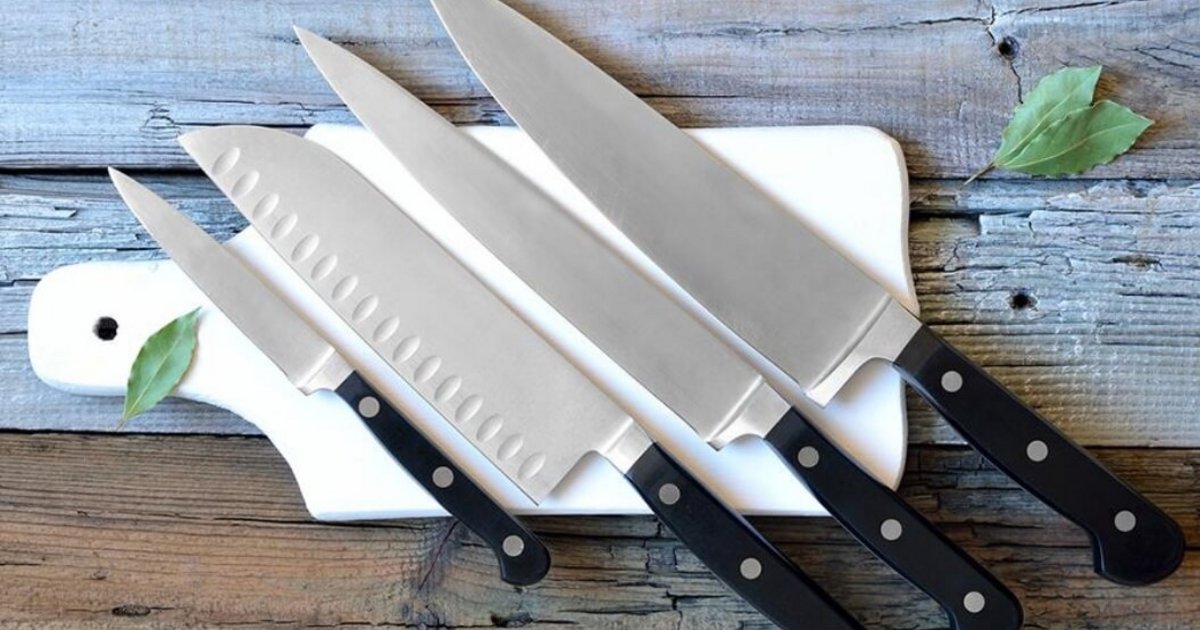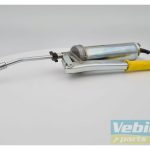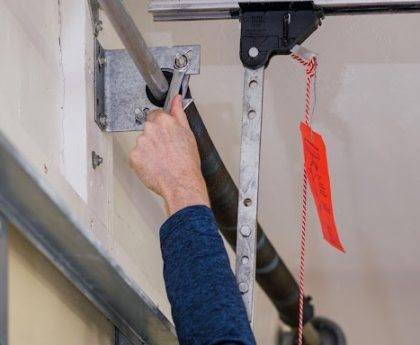A well-organised kitchen is key to efficient cooking, and proper knife storage plays a crucial role in this. Whether you own a Victorinox knife, a Giesser knife, or any other cutting knife, storing them correctly ensures they remain sharp, safe, and easily accessible. In this guide, we’ll explore the best ways to store your chef knives and other cutting tools to enhance your Irish kitchen’s efficiency.
Knife Blocks
Knife blocks are a popular choice for many kitchens. They provide a dedicated space for each knife, making them easy to access and store. Look for blocks made from durable materials like acacia or bamboo, which are both sustainable and resistant to moisture.
A knife block not only keeps your knives organised but also adds a touch of elegance to your kitchen.
Magnetic Strips
Magnetic strips are an excellent option for those who want to save counter space. These strips can be mounted on the wall, keeping your knives within easy reach while freeing up valuable workspace. Ensure the magnetic strip is strong enough to hold your knives securely, and place it away from high-traffic areas to prevent accidents.
Drawer Inserts
For a clutter-free countertop, consider using drawer inserts. These inserts are designed to fit inside kitchen drawers, providing a safe and organised way to store your knives.
They keep the blades protected and prevent them from knocking against other utensils, which can dull the edges. Drawer inserts are ideal for those who prefer a minimalist kitchen design.
Knife Guards
Knife guards are individual sheaths that cover the blades of your knives. They are perfect for protecting the edges when storing knives in a drawer or transporting them. Knife guards are available in various sizes to fit different types of knives, ensuring your Victorinox or Giesser knives remain in top condition.
Proper Care and Maintenance
Regardless of how you store your knives, proper care and maintenance are essential. Always hand wash your knives with warm, soapy water and dry them immediately to prevent rust.
Regularly hone and sharpen your knives to maintain their cutting performance. By taking good care of your knives, you’ll extend their lifespan and ensure they perform at their best.
Brands like Victorinox and Giesser offer high-quality knives that deserve the best care, ensuring they remain reliable tools in your Irish kitchen.
Preventing Cross-Contamination When Storing Knives
Introduction Preventing cross-contamination when storing knives is crucial for maintaining a safe and hygienic kitchen.
Here are some tips to help you store your knives properly and avoid cross-contamination:
Tips to Prevent Cross-Contamination
- Use Separate Storage Solutions: Store different types of knives separately. For example, keep knives used for raw meat separate from those used for vegetables. This can be achieved by using different knife blocks or magnetic strips.
- Clean and Sanitize Knives Before Storing: Always wash your knives thoroughly with warm, soapy water and dry them immediately before storing. This prevents bacteria from raw meats or other foods from contaminating the storage area.
- Regularly Clean Storage Areas: Clean and sanitise your knife block, magnetic strip, or drawer inserts regularly. This helps remove any residual bacteria that might have transferred from the knives.
- Use Knife Guards: Knife guards are individual sheaths that cover the blades. They not only protect the knife edges but also prevent cross-contamination by keeping the blades isolated.
- Avoid Storing Knives in Drawers with Other Utensils: Storing knives in a drawer with other utensils can lead to cross-contamination. Use dedicated knife drawers with inserts or guards to keep them separate and protected.
- Dry Knives Completely: Ensure knives are completely dry before storing them. Moisture can promote bacterial growth and lead to rust, which can contaminate other utensils and food.
- Use Colour-Coded Knives: Consider using colour-coded knives for different tasks (e.g., red for meat, green for vegetables). This helps easily identify and use the correct knife, reducing the risk of cross-contamination.
Best Way to Clean Knife Blocks
Introduction Cleaning your knife block regularly is essential to prevent the buildup of bacteria and ensure your knives remain in good condition.
Here’s a step-by-step guide to help you clean your knife block effectively:
How to Clean a Knife Block
- Remove All Knives: Take all the knives out of the block. This is a good opportunity to wash and dry them thoroughly.
- Shake Out Debris: Turn the knife block upside down and shake it over a trash can to remove any loose crumbs or debris.
- Vacuum the Slots: Use a vacuum cleaner with a narrow attachment to suck out any remaining particles from the slots.
- Brush the Slots: Use a pipe cleaner, baby bottle brush, or a small brush to clean inside each slot. This helps dislodge any stubborn debris.
- Wash the Block: Fill a sink with warm, soapy water. Use a sponge or brush to scrub the outside of the knife block. For the slots, dip the brush into the soapy water and clean each slot thoroughly.
- Sanitise the Block: Prepare a sanitising solution by mixing one tablespoon of bleach with one gallon of water. Pour the solution into the slots and let it sit for a minute. Alternatively, you can use distilled white vinegar or hydrogen peroxide as a natural disinfectant.
- Rinse and Dry: Rinse the knife block thoroughly with clean water to remove any soap or bleach residue. Turn the block upside down and let it air dry completely. You can also use a fan to speed up the drying process.
- Reinsert the Knives: Once the knife block is completely dry, reinsert the clean, dry knives.
Additional Tips
- Regular Cleaning: Aim to clean your knife block at least once a month to prevent bacteria buildup.
- Dry Knives Before Storing: Always ensure your knives are completely dry before placing them back in the block to prevent moisture buildup and mould growth.
SUMMARY
By following these steps, you can keep your knife block clean and hygienic, ensuring your knives remain in top condition. Proper maintenance of your knife storage not only extends the life of your knives but also contributes to a safer and more efficient kitchen environment.





